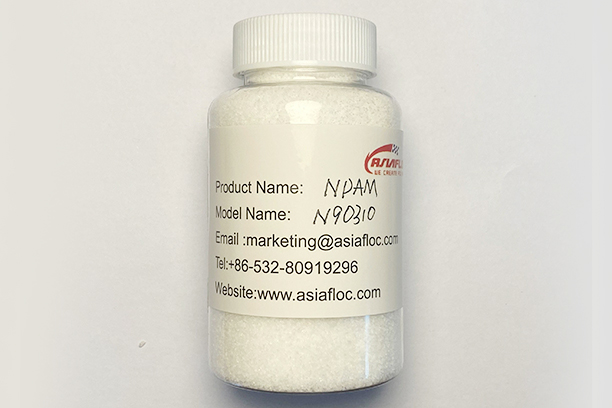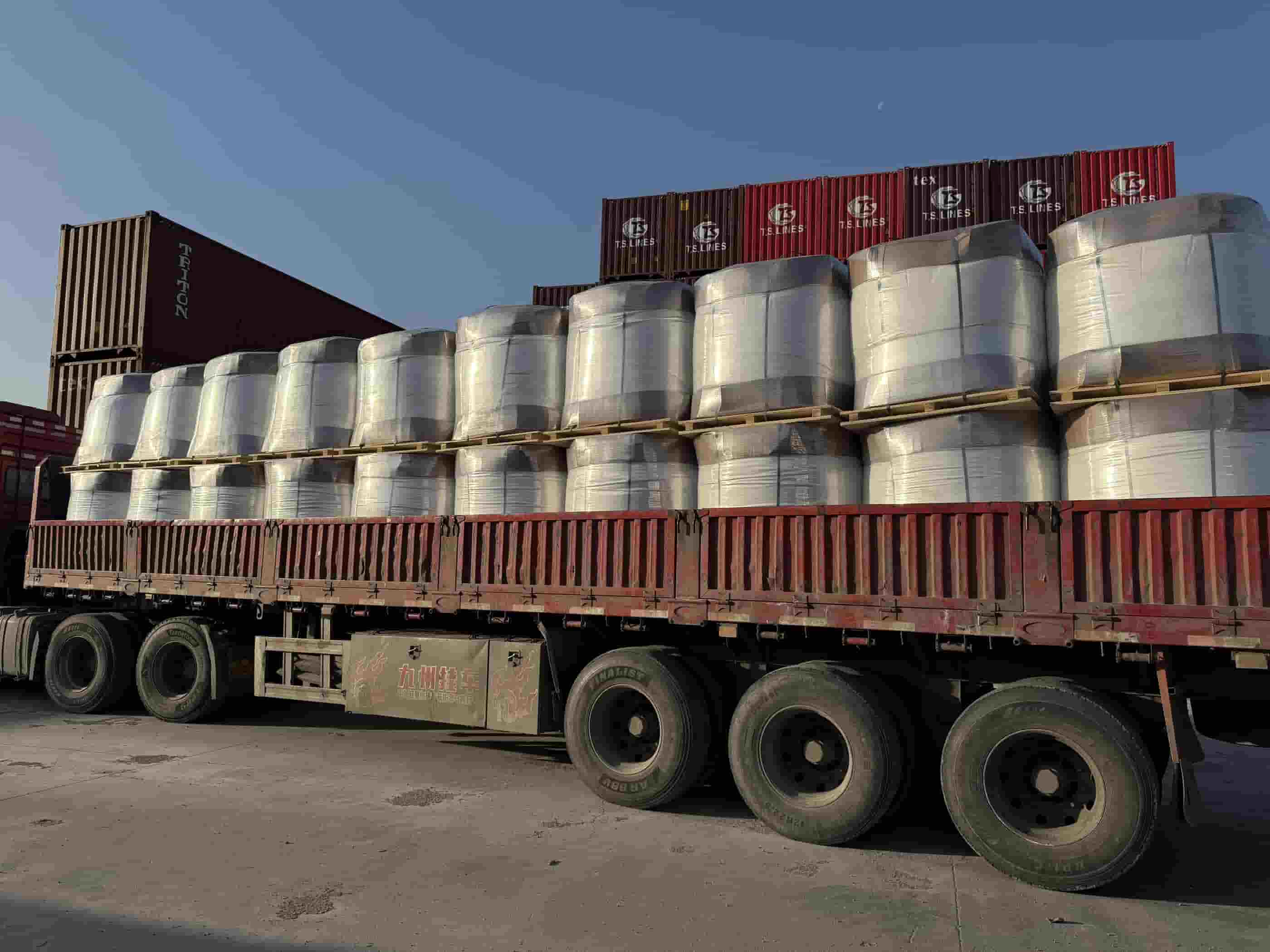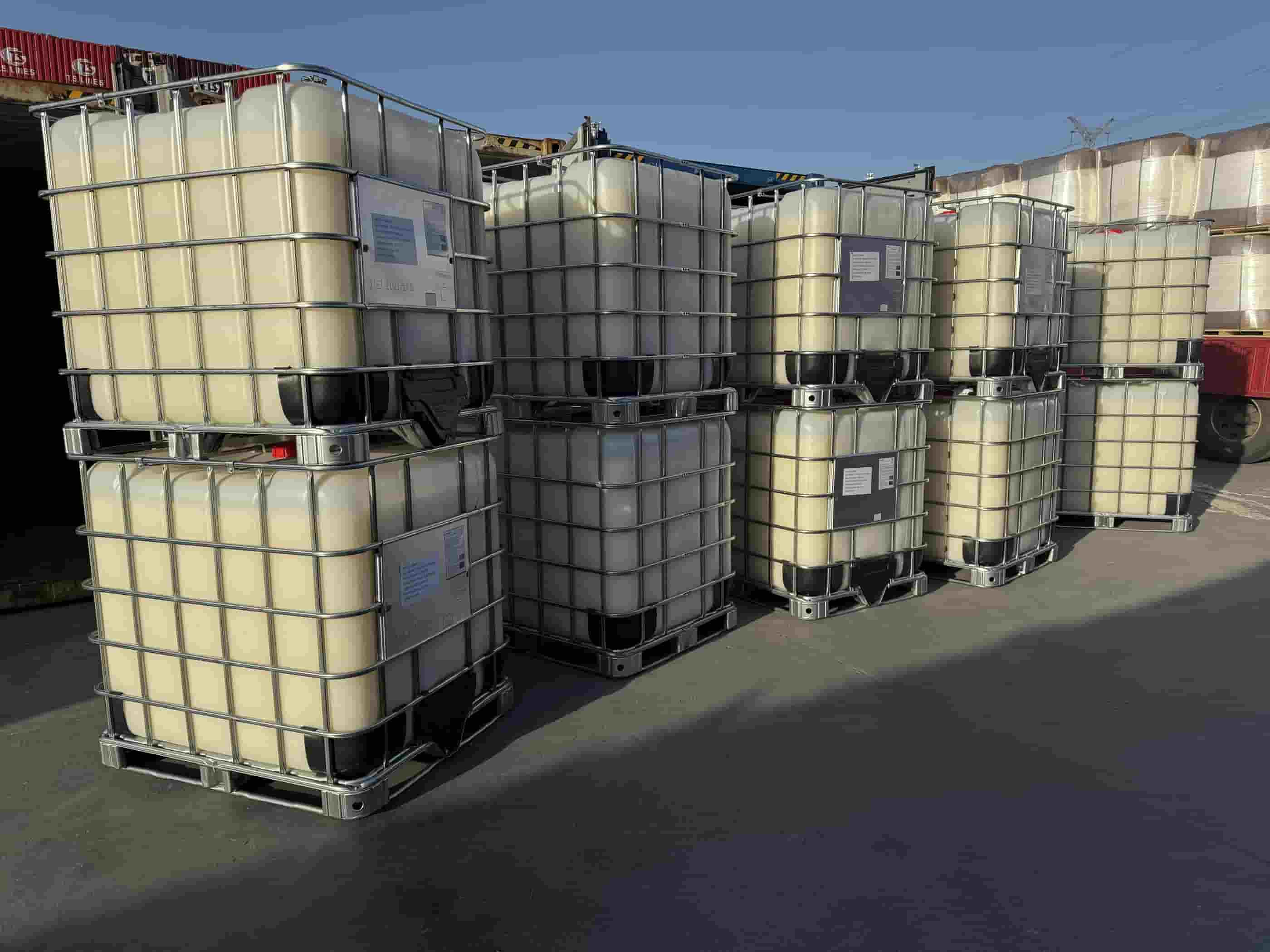Non-ionic flocculants are water-soluble polymers or polyelectrolytes. Because its molecular chain contains a certain number of polar groups, it can adsorb solid particles suspended in water to bridge between particles or condense particles to form large flocs through charge neutralization. Therefore, it can accelerate the sedimentation of particles in the suspension, and has a very obvious effect of speeding up the solution clarification and promoting filtration. Zhengzhou Tianhe Water Purification Material Co., LTD. Non-ionic flocculant is mainly used for various industrial wastewater flocculation sedimentation, precipitation clarification treatment. Such as papermaking and pulp waste water treatment, mineral processing and metal smelting process waste water treatment, iron and steel plant and stone processing plant waste water treatment.
Application of non-ionic flocculant (SuperFLOC N100 N300)
Color
- white powder
Application
- water treatment
Certificate
- iso9001
Place of Origin
- china
Other Names
- flocculant
CAS No
- 9003-05-8
Brand Name
- chinafloc
Application of non-ionic flocculant (SuperFLOC N100 N300)
Overview of non-ionic flocculant products
Non-ionic flocculants are water-soluble polymers or polyelectrolytes. Because its molecular chain contains a certain number of polar groups, it can adsorb solid particles suspended in water to bridge between particles or condense particles to form large flocs through charge neutralization. Therefore, it can accelerate the sedimentation of particles in the suspension, and has a very obvious effect of speeding up the solution clarification and promoting filtration. Zhengzhou Tianhe Water Purification Material Co., LTD. Non-ionic flocculant is mainly used for various industrial wastewater flocculation sedimentation, precipitation clarification treatment. Such as papermaking and pulp waste water treatment, mineral processing and metal smelting process waste water treatment, iron and steel plant and stone processing plant waste water treatment.
Two, the use of non-ionic flocculant detailed explanation
The detailed uses of non-ionic flocculants are as follows:
1, used for sewage treatment. It is more suitable to use non-ionic flocculant as flocculant when the suspended sewage is acidic. At this time, PAM plays the role of adsorption bridge, so that suspended particles produce flocculation precipitation, to achieve the purpose of purifying sewage. Can also be used for the purification of tap water, especially with inorganic flocculants: polymeric aluminum chloride, polymeric aluminum chloride, alkali aluminum chloride, polymeric ferric sulfate and other use, in water treatment effect is good.
2, textile industry auxiliaries. Generally applicable to zhengzhou Tianhe non-ionic flocculant (NPAM) as well, add some chemicals can be matched into chemical sizing, used for textile sizing.
3, sand control and sand fixation. Non-ionic flocculant solution (NPAM) was added to 0.3 concentration of crosslinking agent and sprayed on the desert to play the role of sand fixation
4, oil field profile control water agent. Non-ionic flocculant (NPAM) is widely used as profile control and water plugging agent in oil field by combining with lignocellulose and adding certain chemical additives
5. Chemical grouting agent. Using 9.5 parts of Zhengzhou Tianhe non-ionic flocculant (NPAM) and 0.5 parts of N, N-- methylene bisacrylamide miscible can be used as chemical grouting agent for water plugging of dam, foundation and tunnel
6. In mining industry. Usually use a lot of water, and then often need to recycle useful solids in the water, and the waste water purification recycling. The application of non-ionic flocculant (NPAM) flocculants promotes the settling of solids, which increases production efficiency, reduces tailings loss and water consumption, reduces equipment investment and processing costs, and eliminates environmental pollution.
7. In the process of coal washing, the sedimentation and filtration of pulverized coal and slime are the main economic problems and pollution control problems. Non-ionic flocculant (NPAM) products can reduce soil coloring, pipe clogging, pump maintenance and river pollution, improve productivity, recover coal powder and improve filtration rates, and completely clarify water.
8. In the electrolytic refining process, the metal precipitation can be homogenized to make the coating brighter and improve the current efficiency.
9, in the inorganic fiber mud (asbestos-cement products) can make the formed asbestos-cement products drainage is improved, so that the strength of the asbestos slab is improved; In the insulation board, the combination of additive and fiber can be improved.
10. Can be used as additives for plastic film and agricultural film.
11, non ionic flocculant (NPAM) composite material can be used for ore deposits, ponds, DAMS, foundation grouting material.
12. In soil improvement, non-ionic flocculant can enhance the firmness of soil aggregate structure, increase soil water content and soil structure bearing load.
13. Non-ionic flocculant (NPAM) gels can be used for separation of substances that maintain biological activity, controlled release of drugs and encapsulation of enzymes, protein electrophoresis, and gel electrolyte of batteries.
Three, the flocculation principle of non-ionic flocculant
The side group on the molecular chain of non-ionic flocculant is an active amide group, which can undergo various chemical reactions and obtain various derivatives, but due to the adjacent gene effect, the reaction is often not complete.
As non-ionic flocculant (NPAM) is a high molecular polymer or polyelectrolyte, its molecular chain contains a certain amount of polarity genes can adsorb suspended solid particles in water, so that the particles bridge to form a large flocculant. Zhengzhou Tianhe non-ionic flocculant can accelerate the sedimentation of particles in suspension, accelerate the clarification of solution and promote filtration.
Non - ionic flocculant belongs to water - soluble polymer. According to the molecular chain contains a certain number of polar groups, by absorbing solid particles suspended in water, the particles can be bridged or the particles can be condensed into large flocs by charge neutralization. Therefore, it can accelerate the sedimentation of particles in the suspension, and has a very obvious effect of speeding up the solution clarification and promoting filtration. Mainly used in various industrial wastewater flocculation sedimentation, precipitation clarification treatment. Such as papermaking and pulp wastewater treatment, mineral processing and metal smelting process wastewater treatment, iron and steel plant and stone processing plant wastewater treatment and so on.
Four, the advantages of non-ionic flocculant
The advantages of non-ionic flocculants are mainly used as flocculants. Because the molecular chain contains a certain amount of polarity genes, it can absorb suspended solid particles in water, so that the particles bridge to form large flocs. Non-ionic flocculant can accelerate the sedimentation of particles in suspension, has a very obvious speed up the clarification of the solution, promote filtration and other effects, widely used in the treatment of chemical industry wastewater, waste liquid, municipal sewage treatment. Especially when the sewage is acidic, it is suitable to use this product. It can be used with inorganic flocculants such as poly-iron and poly-aluminum.
Correct packaging, storage and transportation of non-ionic flocculant
1, packaging: non-ionic flocculant is a water-soluble polymer, so when packaging, must use a lining membrane packaging to prevent the product from moisture, failure. The packing of this product is two kinds of woven bag lined with double layer polyethylene plastic or plastic kraft paper bag, each bag net weight 25㎏.
2, storage: non-ionic flocculant is water-soluble chemical products, according to have a strong moisture absorption, must not be exposed to the air, otherwise it is easy to agglomerate after moisture absorption, affecting the use effect. Therefore, keep in a dry place. Non-ionic flocculant products have a shelf life of two years.
3, transportation: in transportation to try to avoid the sun and rain; Prevent packaging aging broken xun, resulting in loss of products.





551.jpg)
